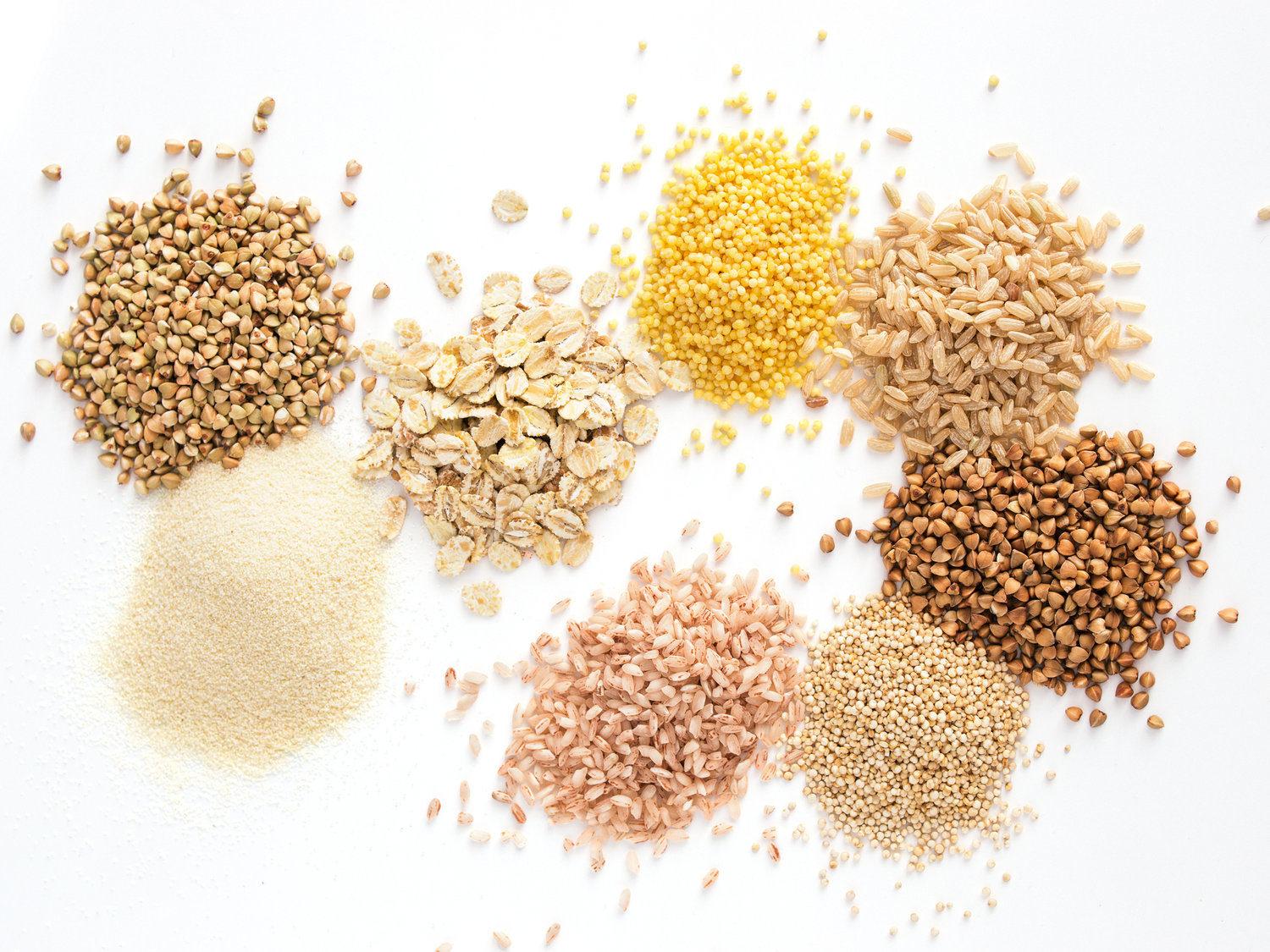Polycystic Ovarian Syndrome (aka PCOS) is the most common endocrine disorder in women, affecting around 15% of women. It’s also the leading cause of infertility. Despite this, over 70% of women who have it go undiagnosed or misdiagnosed. To shine a light on PCOS and how it can be managed and treated (there is no cure), Culina Health RD Rachel Brief hosted a free community webinar. You can watch the recording here, or keep reading for takeaways!
What is PCOS, and what are the symptoms?
Polycystic ovary syndrome (PCOS) is a hormonal disorder affecting women of reproductive age, characterized by irregular periods, excess androgen levels, and potentially, cysts on the ovaries, which can lead to infertility and other health problems. While PCOS manifests differently in everyone, symptoms generally fall into 3 categories, and typically patients will be diagnosed if they have 2 out of the 3:
- Irregular periods. This could look like amenorrhea, which is the absence of menstruation for more than 3 cycles, or olig-o-menorrhea, which is defined as infrequent or abnormal cycles.
- Polycystic-looking ovaries, which can be detected with an ultrasound. This is not to be confused with cysts on your ovaries. Polycystic-looking ovaries are ovaries with many follicles on them, not cysts. There is a specific look to these ovaries.
- Testosterone-like symptoms. This can be high testosterone on bloodwork, or symptoms such as acne, male-pattern balding, or hair on your face and chest.
There are a variety of other symptoms with PCOS, such as weight gain, infertility, and inflammation. PCOS patients are also more prone to mood disorders such as anxiety or depression. If you look at a PCOS patient’s history, at some point they likely have had panic attacks, or have been treated for anxiety or depression.
PCOS Treatment Goals
While there is no known cure for PCOS, it can be managed and treated with a variety of interventions. Three of the main goals we focus on include:
- Balancing blood sugar. More than half of women with PCOS will be diagnosed with type II diabetes by age 40 so learning to manage blood sugar is crucial.
- Improving quality of life. Addressing mental health struggles, as well as any disruptive symptoms like weight gain and hair loss or acne.
- Reducing risk of long-term health complications. Women with PCOS are at increased risk for cardiovascular disease, type II diabetes, infertility, endometriosis, endometrial cancer, and eating disorders.
About Insulin Resistance
Insulin is a hormone made by the pancreas that is released into the blood when you eat carbohydrates, which in turn causes glucose levels to rise. Insulin helps move glucose out of your body and into your cells, where it’s turned into energy. For most women with PCOS, the cells have become resistant to insulin (aka insulin resistance)… insulin is knocking at the door of each cell, but no one is responding. As a result, the sugar has trouble getting into cells and more sugar is staying in your blood.
Your pancreas is likely making enough extra insulin to keep trying to clear the sugar from the blood… but eventually, it may not be able to make enough extra insulin. Blood sugar levels may continue to rise, and your risk of developing diabetes rises.
Insulin resistance and PCOS
Insulin resistance affects anywhere between 65-95% of women with PCOS, regardless of BMI.
In addition to the inability to convert glucose into energy, insulin resistance can impact our hunger and fullness cues, and drive cravings for sugar. It’s also the culprit in overproduction of testosterone that leads to excess fat storage and testosterone-like sympoms like acne and hair loss or hirsutism.
Balancing Blood Sugar with PCOS
As we mentioned before, balancing blood sugar with PCOS is absolutely critical for alleviation of symptoms and long-term health. A few ways to do this…
- Prioritize fiber. Get at least 30g per day of fiber, which will help with weight management, gut health, heart health, and promote satiety, in addition to keeping blood sugar balanced.
- Get enough protein. Between 25-30g per meal. This will help with muscle health, hormones, weight management, and immune health.
- Eat your veggies. You can’t eat too many veggies! But keep fruit to 2 servings per day max to keep blood sugar balanced.
- Adjust meal timing. Keep your blood sugar balanced by eating small meals every 3-4 hours. But don’t overdo it! You need to allow the body time for insulin and glucose to go down. If you’re eating more frequently, such as every 2 hours, insulin will constantly be elevated because the blood sugar is constantly spiking.
How to Build a Blood Sugar-Friendly Meal
Knowing how to build a balanced meal is crucial to maintaining blood sugar balance and preventing insulin resistance. Components of your plate should include:
- Lean protein (25%). Good examples of lean proteins include edamame, tuna, salmon, tilapia, cod, sardines, shrimp, skinless chicken, skinless turkey, beans, lentils, chickpeas.
- High-fiber carbohydrate (25%). Good examples of high-fiber carbs that won’t spike your blood sugar include whole wheat bread, barley, whole wheat pasta, bulgur, quinoa, wild rice, farro, and potatoes.
- Non-starchy vegetables (50%). Good examples include broccoli, cauliflower, eggplant, zucchini, squash, okra, kale, brussels sprouts, string beans, and carrots.
Lifestyle Considerations for Improved Quality of Life
PCOS responds well to diet and lifestyle changes. Here are some common interventions that can help people with PCOS, but really are positive for anyone, regardless of their diagnosis!
Daily exercise and movement
A combination of planned exercise and active daily living (“ADL”) is ideal. ADL is walking to work, taking the stairs, parking farther away from your destination to get steps in. Planned exercise is that 30, 45, 60 minute time that you carve out for yourself to meet at least 150 minutes per week of moderate intensity exercise or 75 minutes of vigorous exercise/week. We do want to focus on resistance training with PCOS in addition to cardio. Aerobic activity + resistance strengthening increases insulin sensitivity by 77% compared with only doing aerobic exercise, which only increases sensitivity by 30%. Do what you love and whatever is going to get you moving your body with JOY.
Sleep hygiene
Aim for 8 hours of sleep each night. Between 10pm-2am is when we get our most beneficial rest. That’s when we are in deep sleep and when growth hormone is produced. This is essential for repair, cognition, hormone regulation, immunity, and more. So the earlier, the better. Avoiding screens before bedtime is a great way to wind down more quickly and promote restful sleep.
Stress management
We all need to work on our stress management. Often, RDs will collaborate with a patient’s therapist. As mentioned, anxiety and depression are common in those with PCOS and talk therapy is an excellent way to regulate stress and improve self esteem. Also, we can’t overlook the value of community! This can be friends, family, a book club, coworkers, people you meet in an exercise class. Life is a team sport and we need people around us that are positive, motivating, like-minded, and help propel us towards our best selves.
Toxin exposure
Awareness around endocrine disruptors is becoming more mainstream, and we know that there is a link between toxic chemicals such as phthalates, BPAs, parabens, and PFAS, with PCOS. They’re called endocrine disruptors because they interfere with our hormones and can cause issues ranging from cognitive dysfunction to infertility. These chemicals, sometimes called forever chemicals, because they persist, are found in the foods we eat, skin products, and even cooking utensils. The more we know, the more we can be empowered to make choices to avoid this. It’s overwhelming and we need to live our lives, but a great place to begin is by ditching plastic in your home. Swap tupperware for glass pyrex, plastic water bottles for stainless steel.
Supplements for PCOS
While you should always consult a healthcare professional before introducing supplements into your health regimen, they can be beneficial for PCOS treatment and build on the changes we’re already making and fill in any gaps in our nutrient intake. There are many nutrients we can’t get enough of through food, like Vitamin D. Vitamin D is only found in a handful of foods naturally. Rachel always says that no amount of a fancy supplement is going to address dehydration, fatigue, anxiety, sleep, achy bones the way that water, movement, and a properly-balanced diet will.
- Vitamin D. Helps with weight management, immunity, mood, bone health, and reproductive hormones.
- Ovasitol. Helps with fertility, blood sugar regulation.
- Omega-3. Helps with Inflammation, brain health.
- Curcumin. Helps with inflammation.
- NAC. Helps with detoxification and antioxidant production.
- Magnesium. Helps with sleep, relaxation, GI health, cognition.
How Can an RD Help with PCOS?
As mentioned, every woman experiences PCOS symptoms differently. It is crucial to feel confident, and one of the best ways to do so if you’re feeling overwhelmed, is by creating a team of healthcare professionals around you that you feel safe with, and that starts with a dietitian! An RD will help create your roadmap for how to manage your specific and unique symptoms so that you don’t need to play doctor and be on WebMD and Reddit searching for answers. An RD will educate you, empower you and really help to optimize your lifestyle through nutrition and wellness.
Sound good? You can get matched with a Culina Health RD today to take the next step in your health journey.






